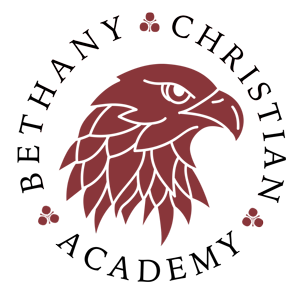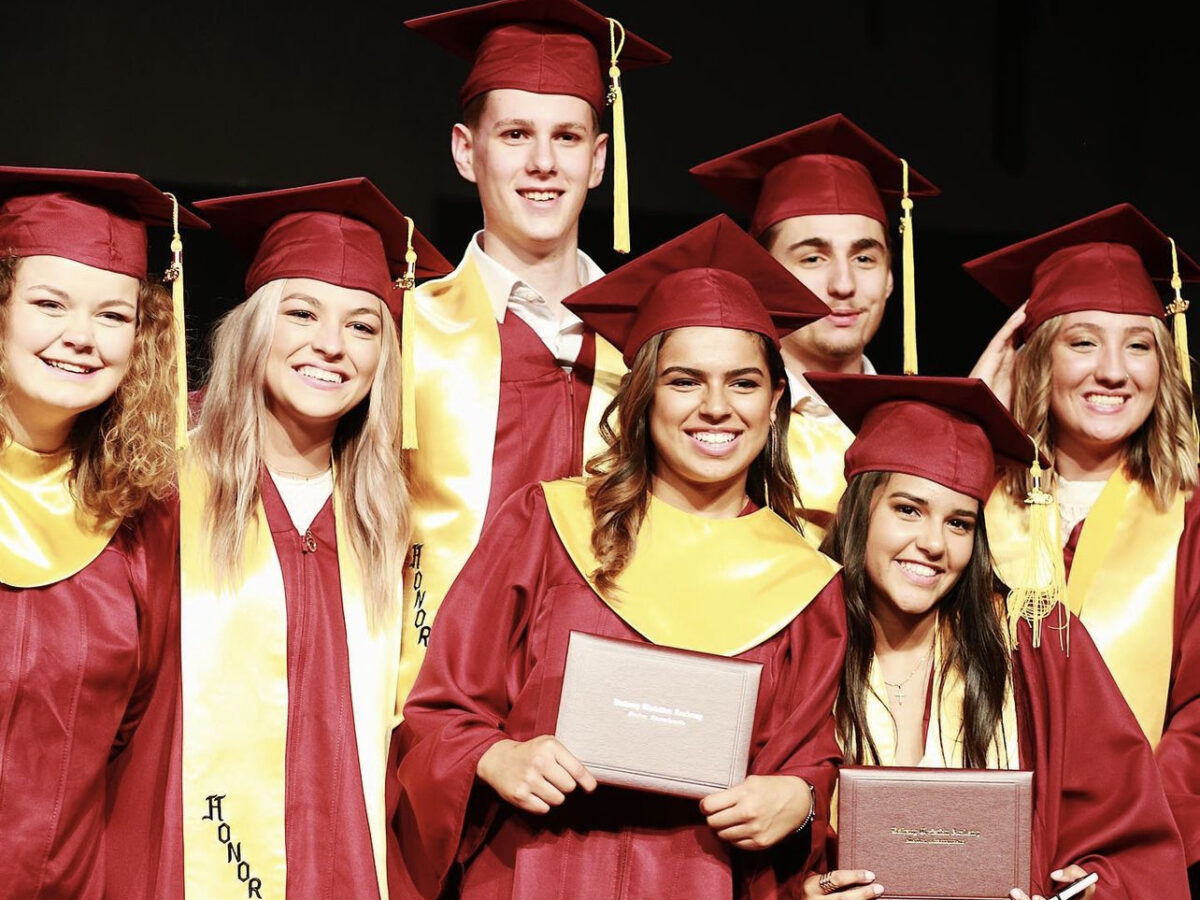Bethany Christian Academy provides a unique and effective High School experience. With classroom sizes staying 20 students or under, we’re able to offer a hands on learning environment with ample one on one opportunities with the student’s teachers.
Throughout the year, High School students will walk through a range of academic programs, including, but not limited to the following programs.
ANATOMY & PHYSIOLOGY
This is a year long program that covers medical terminology, basic chemistry, cell and tissue structure, and the 11 systems of the human body, as well as lab activities.
PSYCHOLOGY
Psychology surveys the major principles of psychology. It covers the scientific study of behavior, behavioral research methods and analysis, and theoretical interpretations. It includes topics such as: abnormal psychology, learning, intelligence, personality, memory, altered states of awareness and social psychology (examines types of social variables and methods used to study them, and the effect of social variables upon the behaviors of individuals).
CHEMISTRY & BIOLOGY
Chemistry at BCA includes topics in chemical bonding, atomic and molecular structures, chemical reactions and gas behavior. Closely interrelated lab work, class-room discussions and demonstrations enhance understanding.
Biology at BCA is an introductory biology course. Discussion and laboratory work will focus on the scientific method, cellular and molecular biology, classical genetics, the relationship between structure and function in living systems, human biology and plants.
CALCULUS
The textbook followed is AP Calculus by Finney, Demana, Waits and Kennedy. The text is a perfect balance of exploration and theory. The topics covered during the year are Limits and Continuity, Derivatives, Applications of Derivatives, The Definite Integral, Differential Equations and Mathematical Modeling, Applications of Definite Integrals, L’Hopital’s Rule, Improper Integrals. The following objectives reflect the goals of the curriculum:
- Students should understand the meaning of derivative in terms of rate of change and local linear approximations.
- Students should be able to work with functions represented graphically, numerically, analytically or verbally and should understand the connections among these representations.
- Students should understand the meaning of definite integral, both as a limit of Riemann sums and as a net accumulation of a rate of change, and understand the relationship between the derivative and integral.
- Students should be able to model problem situations with functions, differential equations or integrals.
- Students should be able to represent differential equations with slope fields, solve separable differential equations analytically, and solve differential equations using numerical techniques such as Euler’s method.
PRE-CALCULUS
Pre-Calculus will extend and refine algebraic and trigonometric concepts introduced and developed in Algebra 2. This course emphasizes critical and creative thinking in its design for students who wish to further their advanced algebra skills. Pre-calculus is taught at a level and pace to prepare students for AP Calculus AB. Topics covered during the year are function, polynomial and rational functions, the zeros of a polynomial function, exponential and logarithmic functions, trigonometric functions, analytic trigonometry, applications of trigonometric functions, polar coordinates, vectors, analytic geometry, systems of equations, matrix algebra, sequences, induction, the binomial theorem, counting and probability. The text used is Pre-calculus by Michael Sullivan and Michael Sullivan III and contains solid, student-friendly examples and problems.
SPANISH I
This course is designed to provide students with an introduction to the Spanish language and culture. Students will be introduced to the basic language patterns and grammatical constructions of the Spanish language. Pronunciation and functional vocabulary related to everyday life will be emphasized. Listening, speaking, reading and writing skills will be developed.
SPANISH II
This course builds on the foundations learned in Spanish I. New and more advanced vocabulary and grammatical structures will be introduced. All communicative skills will continue with increased emphasis on conversational Spanish.
HEALTH
Health Education is a course in which students have the opportunity to develop an understanding of how their bodies normally function. This course explores current general health issues in emotional health and stress, physical fitness, nutrition, drugs and other current issues of concern from a wellness perspective.
GRADE 9 – GEOGRAPHY
Students study world political and physical maps while becoming familiar with various world cultures. Current events and topics are discussed as the world regions are learned.
GRADE 10 – U.S. HISTORY
This is a comprehensive United States history course. Eras covered range from Pre-Columbian (Native Americans living in the Americas prior to the arrival of Columbus) to our present era. Much of the history will be viewed in relationship to political science, with emphasis placed on the United States government.
GRADE 11 – WORLD HISTORY
This is a comprehensive world history survey course covering Ancient to Modern times.




